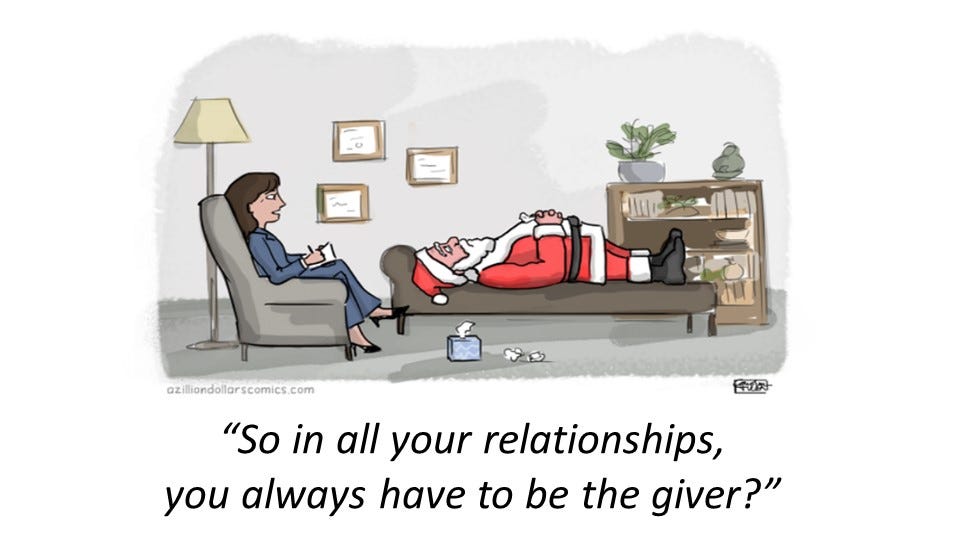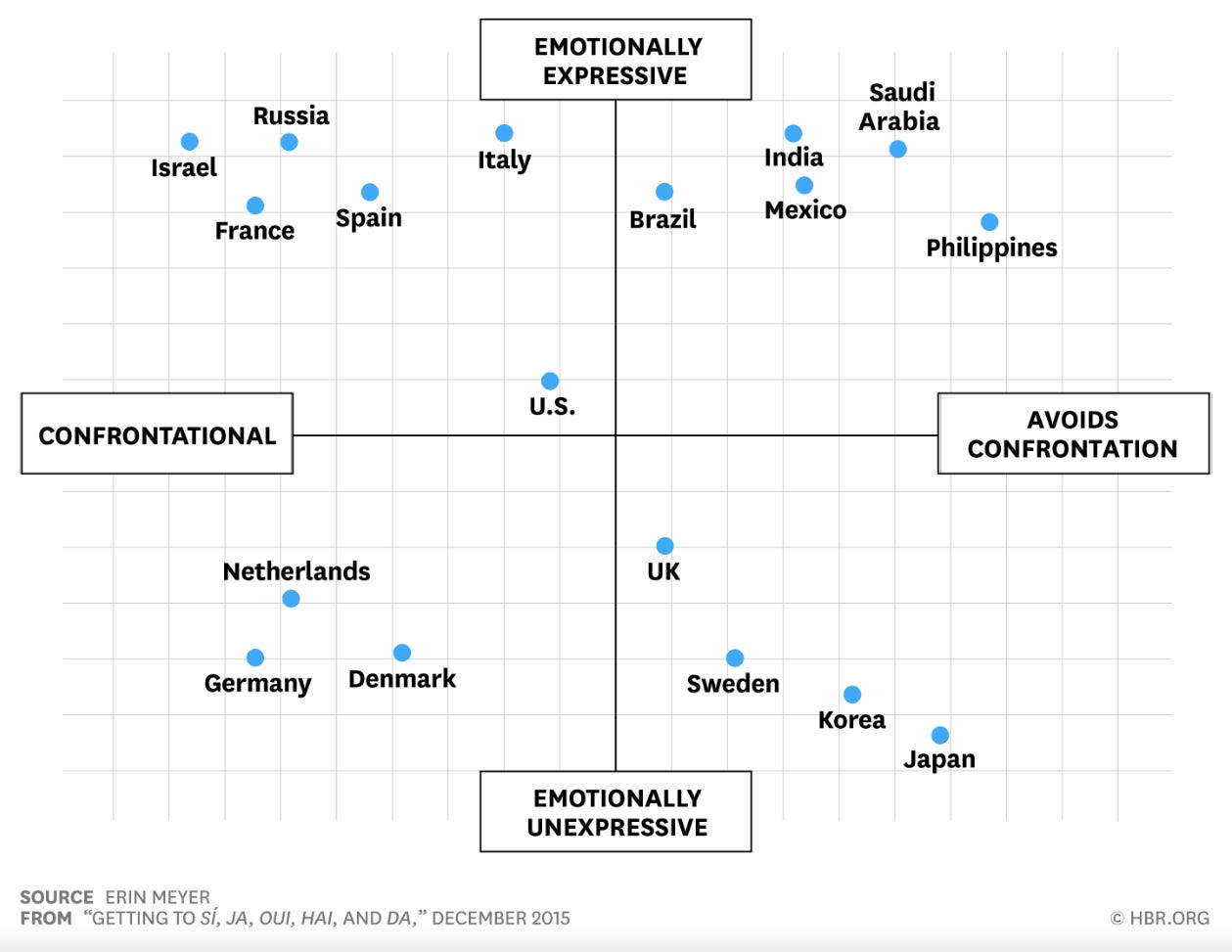The Most Meaningful Way to Succeed Is to Help Others Succeed
Success is not about winning a competition. It’s about making a contribution.
Success is not about winning a competition. It’s about making a contribution.
That was the thesis of my first book, Give and Take, which came out 10 years ago today. It was about the surprising consequences of being a giver—rather than a taker or matcher. Takers are selfish: they aim to be better than others. Givers are generous: they strive to bring out the best in others. Matchers try to be fair: they trade favors evenly. But they often come across as transactional. You didn’t really care about me—you were just paying off a debt or racking up a credit.
Taking seems like the shortest path to the top. But takers often fall by the sword of the karma police. My research revealed that in the long run, giving is a more sustainable route to success… if you’re thoughtful about how you do it.
Over the past decade, thanks to insightful critiques from readers and perceptive questions from audiences, I’ve realized how much I missed. If I could rethink and rewrite the book today, I’d add five chapters:
1. Raising generous kids
As an organizational psychologist, I was focused on how helping others can drive our success at work. But the seeds of rewarding generosity are planted much earlier.
It turns out that teaching kids kindness prepares them for success. In Italy, the eighth graders with the best grades aren’t the ones who got the highest marks five years earlier, but the ones who were rated as most helpful. In the U.S., middle schoolers who believe their parents prize kindness get better grades than those who think their parents put academic and career success first. In Canada, boys who are rated as helpful in kindergarten go on to earn more money in their thirties. A focus on concern for others leads to a stronger sense of purpose, deeper learning, and richer relationships. As a result, along with fueling achievement, caring also boosts happiness.
Parents and teachers are endlessly curious about how to nurture generosity. One of my favorite findings is that nouns are often more effective than verbs. When we shift from “thank you for helping” to “thank you for being a helper,” kids are more likely to internalize giving as part of their identities.
2. The double bind of generosity for women
When I searched for stories to illuminate the data about achieving success through helping others, most of the ones I found were about men. I failed to recognize one of the major causes of that disparity: when men help, it stands out more.
Psychologists find that we tend to stereotype men as ambitious and women as caring. This means that women are more likely to be asked for help—but less likely to get credit for it.
When a man says yes, he gets showered with praise and rewards. What a mensch! I never expected him to care about another human being. If a woman says yes, it’s taken for granted. She loves to help.
Meanwhile, if a man says no, he gets away with it. He’s busy. If she says no, she gets punished. What a bitch. As a result, women get stuck with far more than their share the office housework, the non-promotable tasks, and the invisible mentoring.
It’s the 21st century, people. It’s long past time to stop expecting women to do thankless work—and start dividing tasks equitably, both at work and at home.
3. Cross-cultural differences in helping
What’s the most generous country on earth? It depends on the kind of generosity you have in mind. Research suggests that you might get more emotional support in Mexico, but if you’re looking for constructive criticism, you may have an easier time finding it in Germany:
4. The give and take of personal relationships
My narrow focus on work led to another major oversight—I should’ve examined the dynamics of generosity in friendships and romantic partnerships.
In toxic relationships, one person is always taking and the other is constantly giving. In healthy relationships, both people give and receive with no strings attached. They grant each other the freedom to ask without shame, accept without obligation, and decline without guilt.
5. Building cultures of givers at work
In focusing heavily on our individual styles of interacting, I paid too little attention to how teams and organizations move toward generosity. Some of the key steps:
Hire differently: it’s more important to screen out takers than hire givers
Redesign reward systems: performance evaluations and promotions should account for contributions to others, not just individual results
Change norms: for givers to come out of the woodwork, we have to normalize seeking help, not only giving it
Some readers have argued that it’s impossible to have givers without takers. I disagree. Givers need people to receive, not take. Takers use others for personal gain, and we already have too much of that behavior in the world. Receiving is being grateful for the generosity of others and looking for ways to pay it forward.
The New York Times magazine story that launched the book asked, Is giving the secret to getting ahead? In 2013, I was determined to answer that question. I thought my findings might motivate takers and matchers to shift toward giving. But feedback has been clear that the primary impact has been on people who already identify as givers. They realized they didn’t have to abandon their values—they often just needed to set better boundaries and shield themselves from burnout.
I didn’t have to convince people that helping others is the best way to succeed. Helping others is the most meaningful way to succeed.
***
You can assess your style of giving, taking and matching here
For guidance on dealing with takers: read The Asshole Survival Guide by Bob Sutton (for a preview, listen here: Apple | Spotify | Transcript) and Fool Proof by Tess Wilkinson-Ryan
To learn how to raise kids to be givers, join the Good Inside parenting community with Becky Kennedy
To explore cross-cultural differences, check out Erin Meyer’s Culture Map
For practical guidance on leading as a giver—rather than a taker or “accidental diminisher”—read Multipliers by Liz Wiseman
To improve at asking for help, listen here: Apple | Spotify | Transcript
For highlights from the book, see my TED talk: Are you a giver or a taker?





I really enjoyed the extra five chapters you would’ve added. I like that you revisit and revise and reevaluate your work. That really helps me trust you and want to learn your opinions. Thanks!
When younger writers and freelancers ask me if there’s a secret to success, I always say: “Help others succeed.”